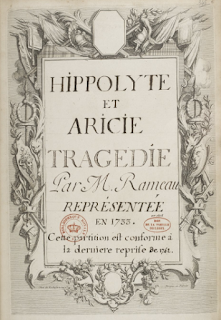Verdi - La Traviata
La Monnaie, Brussels, Sunday December 9 2012
Conductor: Ádám Fischer. Production: Andrea Breth. Sets: Décors: Martin Zehetgruber. Costumes: Moidele Bickel. Lighting: Alexander Koppelmann. Violetta Valéry: Simona Šaturová. Flora Bervoix: Salomé Haller. Annina: Carole Wilson. Alfredo Germont: Sébastien Guèze. Giorgio Germont: Scott Hendricks. Gastone: Dietmar Kerschbaum. Barone Douphol: Till Fechner. Marchese d’Obigny: Jean-Luc Ballestra. Dottor Grenvil: Guillaume Antoine. Giuseppe: Gijs Van der Linden. Commissionario: Matthew Zadow. Domestico: Kris Belligh. Orchestra and Chorus of La Monnaie.
Act one prelude. A wet night in a gloomy container park. A fresh consignment of prostitutes, in macs and stilettos, disembark from the stacked containers. The girls struggle against the traffickers, with one exception who, on the contrary, aims to seduce them: Violetta we presume.
 |
| Verdi |
Act two, scene one. A giant loft in the early stages of redecoration. The youthful Alfredo, barefoot in jeans and a tee-shirt, expresses his love by smearing “V & A” in grey paint on the windows, unfortunately bringing to the British mind Victoria and Albert. He also comically, in his boyish glee, smears it on Annina’s face and black satin dress. The plot advances more or less as normal. Alfredo pulls on trainers before dashing off to Paris. Violetta writes her letter on a packing crate. She and Giorgio get surprisingly close, holding hands and very nearly kissing.
Act two scene two. The chorus is in the pit again. Flora’s place is much like Violetta’s in Act One (white with chesterfields), only oval and without the display of prostitutes at the rear. The atmosphere is languidly orgiastic and there are girls with naked breasts and black suspender belts in white masks. A man fondles a little girl in a chair at the rear, apparently (it was hard to see so far off) smearing her face with chocolate, though it might have been something else, as he afterwards drops his trousers and squats on an ice bucket. The audience didn't like that. Various louche goings-on include smearing red wine or blood (who knows?) on two of the men, who kiss drunkenly on the floor. The gypsies, along with a man carrying a gorily severed bull's head, arrive slowly, more girls with naked breasts and masks, from the right, sex is simulated, some of the girls go down on all fours to support a glass table-top (Allen Jones reference) used for the gambling episode, one has her throat slit with a bull's horn…
This was the first time in over 20 years at La Monnaie that I ever heard heckling there. A minor “bataille d’Ernani” broke out, with those against booing and shouting “Scandalous!” and those in favour shouting “Bravo” and “If you don’t like it, leave!”
It isn't clear to me if people are shocked by what they see or by having their intelligence insulted. Simulated sex by singers on the opera stage is singularly unconvincing and ultimately, with rare exceptions, just corny or, to put it the Gallic way as the man behind me did, “conventionnel dans sa provocation”. Better directors get better results, even making our flesh creep, by hinting darkly, using good extras doing vague things in the background. By this time our act one suspicion was confirmed: in this case, the ideas were obvious and the execution weak – though I must say Alfredo’s fight with the Baron, kicking him several times in the balls, was well done: Sébastien Guèze threw himself into it as if he believed in it, which could hardly be said of his colleagues on stage.
Act three. Another wet night in the container park. Annina, still in her black dress, is on her knees giving Grenvil a blow job between containers - his fee perhaps. She wipes her mouth with a tissue. A drugged prostitute in mac and stilettos lies flat out in the doorway to another container on the left (later she will wake to prepare and shoot crack). Violetta is asleep under a pile of polythene sheeting. Etc, etc. Audience yawns.
Apparently Verdi’s first audience for La Traviata found his soprano too old. Here, the casting parti pris was to go for the young or young-looking.
Simona Šaturová was good, especially (i.e. very good) in “Sempre Libera” and the opera’s final scenes, but, lacking forza when called for by the score, is perhaps one notch short of a Violetta: a very good Lucia, I imagined.
Sébastien Guèze looks a good ten years younger than his actual 33 and tears into the role like a labrador puppy among the Christmas presents, nearly singing himself hoarse. My neighbours feared for his vocal cords. The only time I heard him before it was as Séraphin in Messager’s Véronique. You might indeed wonder how long he can go on singing Alfredo and even Rodolfo.
Scott Hendricks was, in line with the parti pris, a young Giorgio as well, but vocally the right weight. I’ve admired him before but found him a bit blustery here – and the rest of the cast tended to be on the blustery side too. Perhaps it was something in the air.
Adam Fischer conducted zippily but had some trouble getting the orchestra, usually good in Verdi, to stay together, and his zippiness was clearly not to all the singers' taste: you could feel them sometimes trying to fight him back to slower tempi.
To sum up: a production that looked sleek in photos but was “thin” in reality, undermining what might, if the hapless singers had been booed and heckled less for the shenanigans they had to take part in, have been an engaging “young” performance.
Maestro Wenarto and friend sing the Brindisi.




Comments
Post a Comment